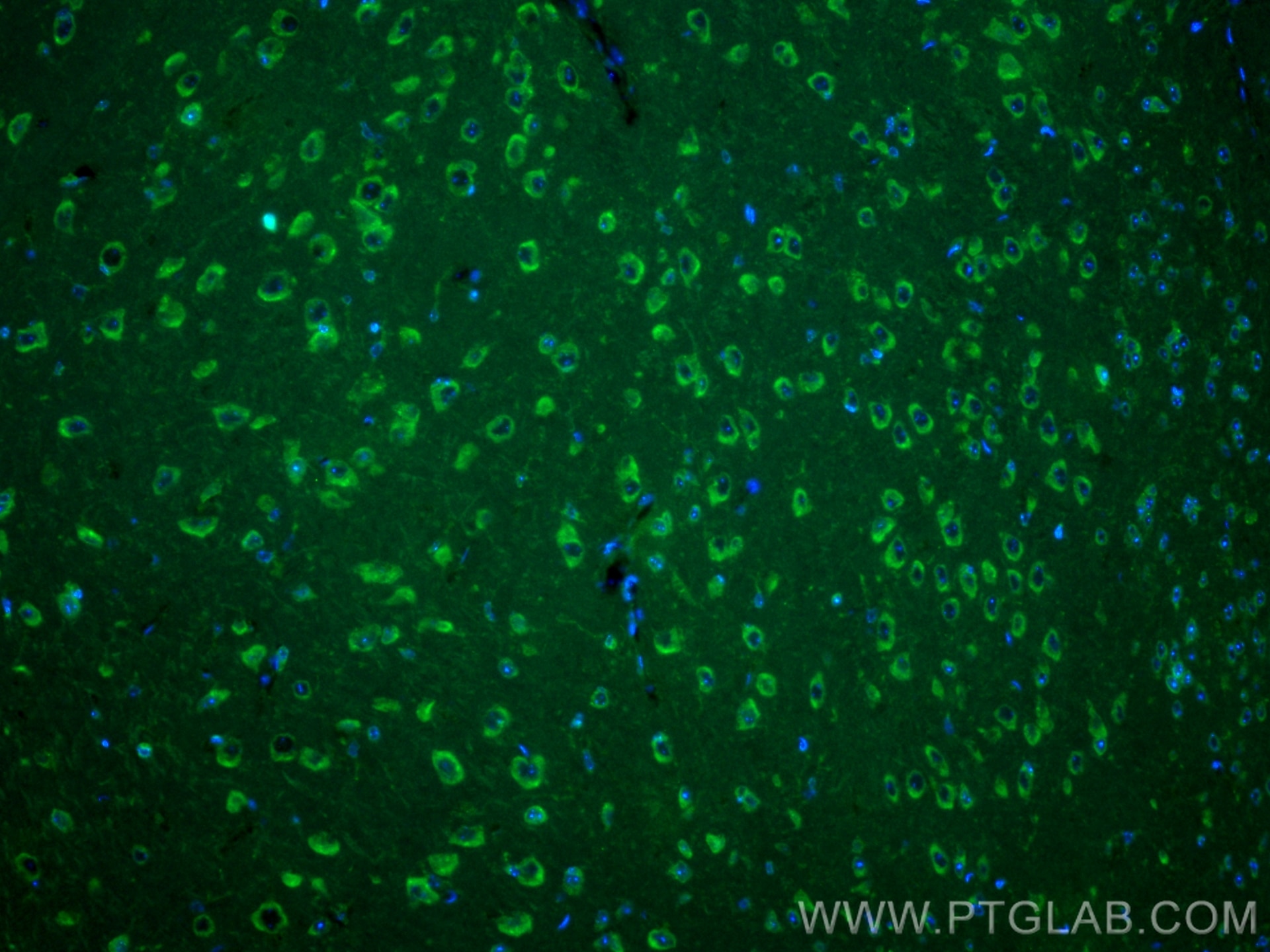Validation Data Gallery
Tested Applications
| Positive IF-P detected in | mouse brain tissue |
Recommended dilution
| Application | Dilution |
|---|---|
| Immunofluorescence (IF)-P | IF-P : 1:50-1:500 |
| It is recommended that this reagent should be titrated in each testing system to obtain optimal results. | |
| Sample-dependent, Check data in validation data gallery. | |
Product Information
CL488-22524 targets Dopamine Transporter/DAT in IF-P applications and shows reactivity with human, mouse, rat samples.
| Tested Reactivity | human, mouse, rat |
| Host / Isotype | Rabbit / IgG |
| Class | Polyclonal |
| Type | Antibody |
| Immunogen |
CatNo: Ag18297 Product name: Recombinant human SLC6A3 protein Source: e coli.-derived, PGEX-4T Tag: GST Domain: 1-62 aa of BC133003 Sequence: MSKSKCSVGLMSSVVAPAKEPNAVGPKEVELILVKEQNGVQLTSSTLTNPRQSPVEAQDRET 相同性解析による交差性が予測される生物種 |
| Full Name | solute carrier family 6 (neurotransmitter transporter, dopamine), member 3 |
| Calculated molecular weight | 620 aa, 68 kDa |
| Observed molecular weight | 68 kDa |
| GenBank accession number | BC133003 |
| Gene Symbol | DAT |
| Gene ID (NCBI) | 6531 |
| RRID | AB_3672743 |
| Conjugate | CoraLite® Plus 488 Fluorescent Dye |
| Excitation/Emission maxima wavelengths | 493 nm / 522 nm |
| Form | |
| Form | Liquid |
| Purification Method | Antigen affinity purification |
| UNIPROT ID | Q01959 |
| Storage Buffer | PBS with 50% glycerol, 0.05% Proclin300, 0.5% BSA{{ptg:BufferTemp}}7.3 |
| Storage Conditions | Store at -20°C. Avoid exposure to light. Stable for one year after shipment. Aliquoting is unnecessary for -20oC storage. |
Background Information
DAT, also name as SLC6A3, is dopamine transporter which is a member of the sodium- and chloride- dependent neurotransmitter transporter family. Dopamine(DA) released from neurons is cleared by the DA transporter (DAT). Altered dopaminergic signaling is linked to multiple neuropsychiatric disorders, such as attention deficit hyperactive disorder, mood disorders, schizophrenia, autism and so on (PMID:30755521).
Protocols
| Product Specific Protocols | |
|---|---|
| IF protocol for CL Plus 488 Dopamine Transporter/DAT antibody CL488-22524 | Download protocol |
| Standard Protocols | |
|---|---|
| Click here to view our Standard Protocols |

